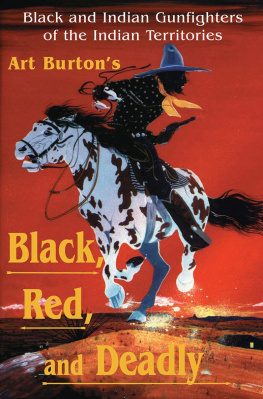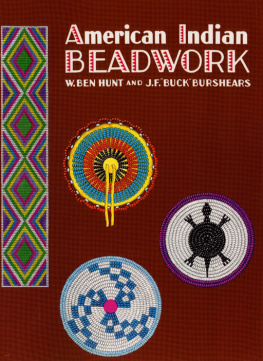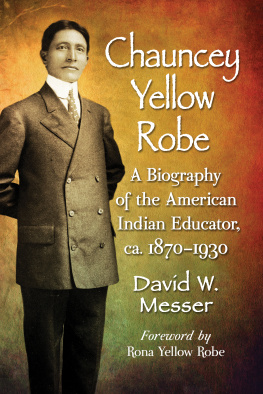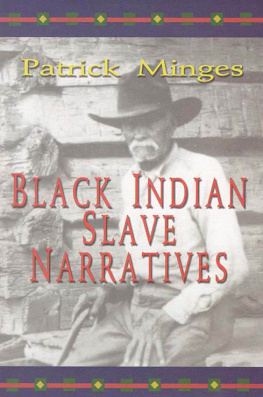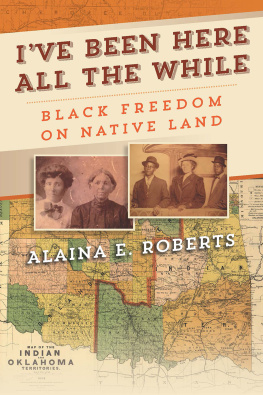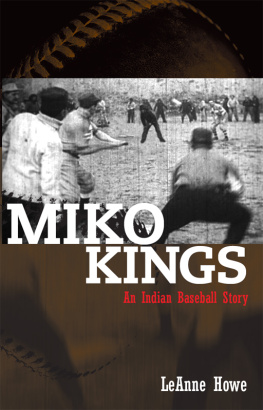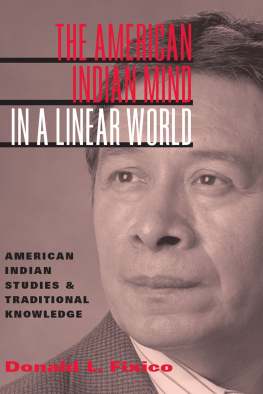| Copyright 1991 By Art T. Burton Published By Eakin Press An Imprint of Wild Horse Media Group P.O. Box 331779 Fort Worth, Texas 76163 1-817-344-7036 www.EakinPress.com ALL RIGHTS RESERVED 1 2 3 4 5 6 7 8 9 ISBN-13: 978-1-68179-177-7 |
ALL RIGHTS RESERVED. No part of this book may be reproduced in any form without written permission from the publisher, except for brief passages included in a review appearing in a newspaper or magazine.
Library of Congress Cataloging-in-Publication Data
Burton, Arthur T.
Black, Red, and Deadly: Black and Indian Gunfighters of the Indian Territories. 1870-1907/by Arthur T. Burton
p. cm.
Includes biographical references and index.
ISBN 0-89015-994-7
1. Afro-American outlawsOklahomaHistory. 2. Indian outlawsOklahomaHistory. 3. Peace officersOklahomaHistory. 4. Frontier and pioneer lifeOklahoma. 5. OklahomaHistory. I. Title
F698.B87 1991
976.600496073dc20 90-44270
CIP
Desperado cover painting by Robby McMurtry
This book is dedicated to:
The memory of my grandparents,
Mr. and Mrs. Frank B. Traylor,
lifelong residents of Arcadia, Oklahoma;
The legacy of the great peace officer,
Bass Reeves;
All who struggle for truth and justice.
Acknowledgments
Many people gave encouragement and assistance in the preparation of this book. I wish to express sincere gratitude to Dr. Nudie Williams, historian at the University of Arkansas, Fayetteville. Dr. Williams is one of the foremost authorities on African-American deputy U.S. marshals of the Indian Territory. Besides giving me permission to quote from his unpublished masters thesis, Dr. Williams supplied pertinent information and inspiration. I am also grateful to Dr. Daniel Littlefield, director of the American Native Press Archives at the University of Arkansas at Little Rock. Dr. Littlefield supplied many leads which assisted in locating archival newspaper sources. Richard Fronterhouse was most gracious in allowing me the opportunity to quote his unpublished seminar paper on the life of Bass Reeves. Robert R. Ernst, research consultant for the U.S. Marshals Service, was most helpful in assisting in locating source material for the book and giving encouragement on the project.
Everyone at the Oklahoma Historical Society was considerate and helpful. William D. Welge, archivist, was very patient and tried to assist and help with my many inquiries. His knowledge of Oklahoma history is encyclopedic; he is truly a marvelous person. Also, Yvonne Madison and Mary Moran of the Societys Newspaper Department were of great assistance.
Guy Nichols, park ranger, Fort Smith National Historic Site, U.S. Park Service, was most helpful in locating photographs and information on outlaws and lawmen who came through the Fort Smith federal court. Wanda Joy Karrant, Genealogy and Arkansas Department, Fort Smith Public Library, supplied much invaluable assistance and information that was critical to the success of the research project.
Brad E. Gernand, graduate reference archivist, Western History Collection, University of Oklahoma Library, gave assistance on inquiries for source material and offered suggestions that were enlightening.
Also assisting in location of source material was Doris RedElk Thames of the Oklahoma Territorial Museum in Guthrie.
There was correspondence with a large number of public libraries throughout the state of Oklahoma. The individuals and their respective libraries listed below were most helpful:
Betty Germany, reference librarian, Ralph Ellison Branch, Oklahoma City Public Libraries; Mary Cary, reference librarian, Ardmore Public Library; Hazel Gosey, reference librarian, Wewoka Public Library; Peggy Royster, director, Guthrie Public Library; Vicky Nigh, reference librarian, Muskogee Public Library. Within this same category, Mary Sieigler, Texas State Library, Austin, Texas, would have to be included.
Local historians who gave insight into territorial Oklahoma were Pliny Twine of Muskogee, and James E. Stewart and J. W. Simmons of Oklahoma City.
In my trips to Oklahoma, my cousin, Mayor Marilyn Murrell of Arcadia, assisted with lodging, logistics and moral support. I also received encouragement and assistance from all of my Oklahoma family.
This book would not have been completed without the assistance and encouragement from my wife, Patrice. Besides accompanying me on research trips, she typed and proofread the manuscript and offered suggestions which improved the final product. Her love and understanding were critical and needed to the fulfillment of this project. To all I didnt mention, a big thanks I wont forget you. And above all I thank the Creator for giving me the vision.
Preface
Regrettably, some of the accomplishments and sagas of the African-American and Native American western gunfighter have never been told in book form. There is a need for the total history of the American West to be told so there will be a more complete picture. Minorities have played a crucial role in the development of our nation, and the West is no exception. This is one of the few studies, if any others exist, exclusively about black and Indian gunfighters of the American West. The evidence uncovers the facts that there were black and Indian gunfighters in prestatehood Oklahoma that deserve a place in our nations history. These men, both good and bad, were as dangerous as any found in the history of the West.
As a result of movies, television, and literary works, a large segment of our population believes the settling of the American West was done primarily by whites. Historians have recognized the fact that there were more than 5,000 African-American cowboys during the cattle trail era, but sadly they have been sorely neglected. In our popular history only Western lawmen such as Wyatt Earp, Bat Masterson, Wild Bill Hickock, and Pat Garrett are known. But there were black and Indian lawmen whose exploits would rival or top the gentlemen mentioned. The African-American peace officer of the western frontier is another neglected area and one of the least known of occupations recorded. These men set a high standard of law enforcement in the Indian Territory (prestatehood Oklahoma).
In popular history only outlaws such as Jesse James, Billy the Kid, Butch Cassidy, and Sam Bass are known. Again there were black and Indian outlaws of the Indian Territory whose crimes and criminal activity were second to none.

